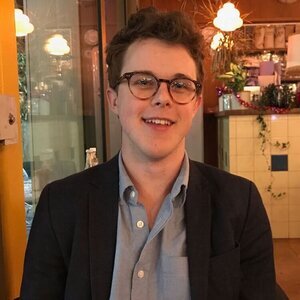Philosophy, Politics and Economics Model Personal Statement
This is a model personal statement by a succesful Oxford PPE applicant.
We live in a world characterised by rapid change, populism, rising inequality and issues around big data, all of which have implications on society; I want to learn about the forces behind this change. My IB course has given me an interest in politics, philosophy and economics.
The Economics syllabus has introduced me to theories and principles underpinning our economic and political systems. Discussions in our Economics Society, including the potential US-China trade war and the case for environmental subsidies, have shown how closely politics and economics are related. I am confident studying these disciplines in tandem will provide a broader perspective on them both.
In History I have seen various political systems and political journeys countries have taken, from Russia’s communist revolution to the emergence of authoritarian states in China and Germany. The landscape of these political changes was partly characterised by economic issues. Interested in political systems, I attend extension classes on history of political thought, covering political thinkers such as Plato and Machiavelli, and how ideas (eg. Plato’s idea of justice as the balance between reason, spirit and appetite) remain relevant. These experiences have highlighted the close connection between politics, philosophy and economics and how fulfilling studying them together would be.
After Harford’s piece on Why Poor Countries Are Poor, I read Acemoglu/Robinson’s Why Nations Fail to explore how incentives, corruption and institutions are central to inequality, how inclusive political institutions - characterised by a strong state and broad distribution of power – enable inclusive economic institutions that foster growth. Recently, Christine Lagarde reiterated the importance of this, describing the global economy to be at a ‘delicate moment’ and pushed the need for inclusive institutions and the role of fiscal policy to create inclusivity through government spending on education, healthcare and employment. Lagarde’s background shows how a blend of economic theory and political experience can help decision makers resolve challenging issues. Cassidy provides another perspective in How Markets Fail, suggesting inequality and market failure can arise from a dogmatic adherence to economic theory. Themes of inequality and exclusion are particularly relevant in the context of Brexit, trade tensions and the rise of populism/Trump.
Abell’s analysis of the Brexit leave campaign (How Britain Really Works) focuses on the use of exaggerated claims to tap into feelings of inequality and exclusion. Brexit: The Uncivil War showed how the leave campaign used targeted advertising to reach this demographic. Similarly, the Cambridge Analytica scandal raised questions about the ethics of big data, its impact on society and what limitations should be applied to balance the benefits of technology against its impact on the individual. This requires an understanding of politics, economics and ethics in this fast-moving field, and for this reason I am enthusiastic to explore these disciplines that have real life implications and increasing importance in our society.
My interest in international relations led me to write my Extended Essay on the decision to use the atomic bomb in WW2. My research showed diplomatic motives to be much stronger than publicly presented, giving me an insight into the complex nature of international relations at the time. There are huge ethical implications of using a weapon for political power. This connection between moral philosophy and politics is one I want to explore further at university studying politics and justice.
Grade 8 drama has given me confidence and poise, whilst being a senior prefect at school has helped me to develop organisation and leadership skills; undertaking Gold DofE has helped me to become more resilient. I’m excited for the chance to delve into these subjects gaining the tools to explore themes central to today and the future.


